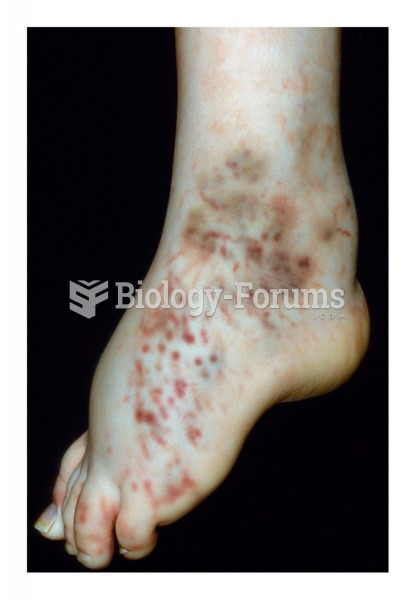|
|
|
The effects of organophosphate poisoning are referred to by using the abbreviations “SLUD” or “SLUDGE,” It stands for: salivation, lacrimation, urination, defecation, GI upset, and emesis.
Drying your hands with a paper towel will reduce the bacterial count on your hands by 45–60%.
People with alcoholism are at a much greater risk of malnutrition than are other people and usually exhibit low levels of most vitamins (especially folic acid). This is because alcohol often takes the place of 50% of their daily intake of calories, with little nutritional value contained in it.
Vampire bats have a natural anticoagulant in their saliva that permits continuous bleeding after they painlessly open a wound with their incisors. This capillary blood does not cause any significant blood loss to their victims.
Medication errors are three times higher among children and infants than with adults.
 Apply skin rolling by lifting the skin and crawling your fingers along the skin while the thumbs ...
Apply skin rolling by lifting the skin and crawling your fingers along the skin while the thumbs ...
 Apply direct pressure along upper trapezius, turning the head to access the area. Use your thumb to ...
Apply direct pressure along upper trapezius, turning the head to access the area. Use your thumb to ...





